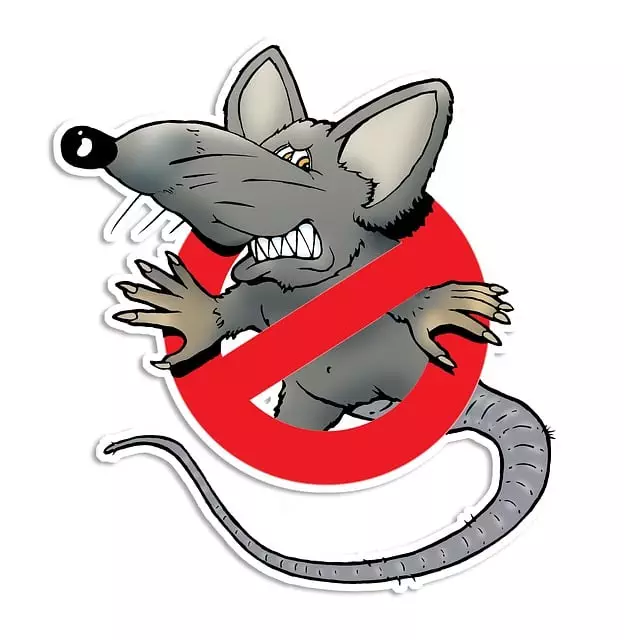Rodent infestations caused by mice, rats, and squirrels pose significant problems for residential and commercial properties. These pests are attracted by food, shelter, and water, entering through small gaps and causing structural damage, contaminating food supplies, and posing health risks. Understanding each species' distinct behaviors is crucial for tailored control strategies. Non-chemical methods like habitat modification, physical barriers, and live trapping provide humane and eco-friendly solutions. Chemical solutions, including poisons and repellents, are effective with professional guidance to ensure safety and minimize environmental impact. DIY methods often fail, while professional services offer advanced techniques and multi-pronged strategies for complete eradication and long-term prevention. Preventive measures include sealing entry points, maintaining cleanliness, and regular inspections.
Rodents can quickly transform a home or property into their own domain, causing significant damage along the way. Understanding these pesky intruders is the first step towards effective rodent control. This comprehensive guide delves into various aspects of rodent extermination services, from identifying common types and behaviors to exploring non-chemical and chemical solutions. Learn about DIY versus professional services, choosing the right approach for your property, and preventing future infestations with proven strategies. Discover why efficient rodent control is crucial for maintaining a safe, healthy living environment.
Understanding Rodent Infestations: Common Types and Behaviors

Rodent infestations can be a significant problem for both residential and commercial properties, with various species including mice, rats, and squirrels being common intruders. Understanding their behaviors and habits is crucial in implementing effective rodent control measures. These pests are often attracted by food sources, shelter, and water, seeking entry through small gaps, vents, or even pipelines. Once inside, they can quickly multiply, causing damage to structures, contaminating food supplies, and posing health risks.
Different rodents exhibit distinct behaviors. Mice, for instance, are known for their agility and ability to squeeze into narrow spaces, making them hard to eradicate. Rats, on the other hand, prefer to live in groups and are excellent climbers and swimmers. Squirrels can cause unique problems, gnawing on electrical wires and insulation, leading to potential fire hazards. Recognizing these behaviors is essential for tailored rodent control strategies, ensuring a comprehensive approach to managing and preventing future infestations through professional rodent extermination services.
The Impact of Rodents on Homes and Properties

Rodents, such as rats and mice, can cause significant damage to homes and properties if left unchecked. These pests have a remarkable ability to infiltrate even the smallest gaps and cracks in structures, seeking food, water, and shelter. Once established, their presence can lead to extensive destruction. They gnaw on wires, insulation, wood, and other materials, potentially causing electrical fires and structural instability. Rodents also contaminate spaces with their droppings and urine, creating unsanitary conditions that pose health risks to residents.
The impact extends beyond physical damage. Rodent infestations can disrupt daily life, leading to sleepless nights, anxiety, and distress for homeowners. Their constant movement and nesting habits create a chaotic atmosphere, especially when they access food supplies and leave behind odours. Effective rodent control is essential to prevent these issues, ensuring peace of mind and the preservation of homes and properties.
Non-Chemical Methods for Rodent Control

Non-chemical methods for rodent control offer a humane and eco-friendly alternative to traditional pesticides. Techniques such as habitat modification, physical barriers, and trapping are effective in preventing and managing rodent infestations. By removing food sources, sealing entry points, and using live traps, these methods allow for the safe and humanely removal of rodents without resorting to harmful chemicals.
Habitat manipulation plays a crucial role in rodent control by eliminating potential nesting sites and food sources. Keeping areas clean, storing food securely, and trimming vegetation can significantly reduce rodent attraction. Physical barriers like metal mesh and concrete blocks are also effective at preventing rodents from entering buildings. These non-chemical strategies not only control existing infestations but also serve as long-term preventive measures for future rodent problems.
Chemical Solutions for Effective Rodent Extermination

Rodent control is a critical aspect of maintaining a healthy and safe living environment. When it comes to dealing with persistent rodent infestations, chemical solutions have proven to be highly effective for rodent extermination. These solutions are designed to target and eliminate rodents humanely and efficiently. Professional pest control services employ a range of chemicals, including poisons and repellents, that are specifically formulated to disrupt the behavior and life cycles of rodents.
One common approach is the use of bait stations, which contain attractive substances mixed with rodenticides. These baits are strategically placed in areas where rodents are most active, encouraging them to feed and, ultimately, die. Modern chemical solutions prioritize environmental safety by using less toxic compounds that target specific enzymes unique to rodents, minimizing harm to non-target species. Effective rodent control not only protects homes and businesses from damage but also reduces the risk of diseases that rodents can carry.
DIY vs Professional Rodent Extermination Services

While some people may opt for do-it-yourself (DIY) methods for rodent control, professional services offer a more effective and efficient solution. Attempting to handle an infestation yourself can be challenging and time-consuming. Over-the-counter products often have limited success rates and can pose health risks if not used properly.
Professional exterminators are trained to identify and eliminate rodents humanely and safely. They employ advanced techniques, including specialized equipment and eco-friendly treatments, ensuring minimal impact on the environment. With their expertise, these services provide long-lasting results, preventing future infestations by addressing the root causes.
Choosing the Right Rodent Control Solution for Your Property

When dealing with rodent infestations, selecting the most suitable rodent control solution is paramount for effective and humane management. The first step involves understanding the extent of the infestation and identifying the specific type of rodents present. Common pests include rats, mice, and squirrels, each requiring tailored strategies. For instance, rats are larger and more aggressive, necessitating robust measures like professional trapping or eco-friendly repellents. Mice, being smaller, might call for targeted baiting or sound/ultrasonic deterrents.
Next, consider the property’s unique characteristics. Factors such as the building’s age, layout, and materials used can influence the choice of control methods. Older homes with cracks and crevices may require a more comprehensive approach compared to modern structures with better sealing. Additionally, environmental concerns should be addressed, favoring solutions that minimize ecological impact while ensuring safety for pets and non-target species.
Common Mistakes to Avoid During Rodent Extermination

Many homeowners attempt DIY rodent control methods, but there are common mistakes that can hinder effectiveness and even pose health risks. One of the biggest blunders is relying solely on traps; while they’re a good initial step, rodents often avoid traps due to their placement or fear of getting caught. This requires a more comprehensive approach involving sealing entry points, removing food sources, and using bait strategically.
Another mistake is not addressing the entire colony. Rodents breed rapidly, so if you only catch a few, the population can quickly rebound. Professional rodent extermination services employ advanced techniques like poison baits, which are more efficient at eradicating entire colonies. Additionally, they ensure all dead rodents are safely removed to prevent disease transmission and any potential health hazards.
Post-Extermination Care and Maintenance Tips

After a successful rodent extermination, maintaining a robust rodent control system is essential to prevent re-infestation. Start by sealing all entry points and gaps around your property using materials like steel wool or caulk. Regularly clean and sanitize affected areas, eliminating any remaining signs of rodents. Keep your surroundings tidy, storing items in sealed containers and removing potential food sources that might attract new visitors.
Consider implementing a maintenance schedule involving routine inspections every few months to identify and address early signs of infestation. Traps and bait stations can be strategically placed for ongoing rodent control, but always follow safety guidelines and local regulations. Remember, consistent vigilance is key to maintaining a rodent-free environment.
Preventing Future Rodent Infestations

After successfully ridding your space of rodents, preventing a future infestation is crucial for maintaining a pest-free environment. Rodent control involves a combination of strategies to ensure these unwanted guests don’t return. Sealing entry points such as gaps in walls, floors, and ceilings is an effective first step. Regularly cleaning and sanitizing areas where food is stored or prepared can also deter rodents, eliminating potential food sources.
Additionally, maintaining good hygiene practices like proper waste disposal and keeping outdoor areas tidy makes your property less appealing to rodents. Using rodent traps or repellents as a last resort can be effective, but it’s important to consult professionals who specialize in rodent control for safe and efficient solutions tailored to your specific situation.
